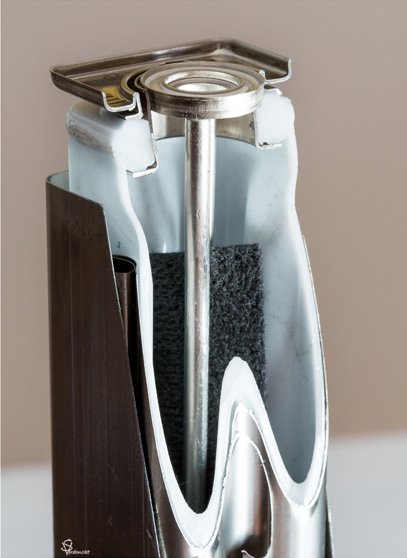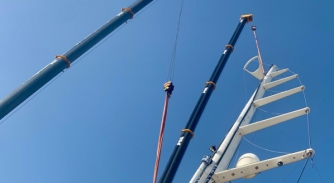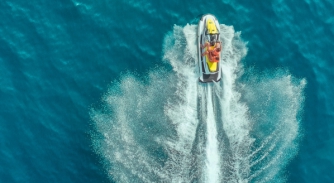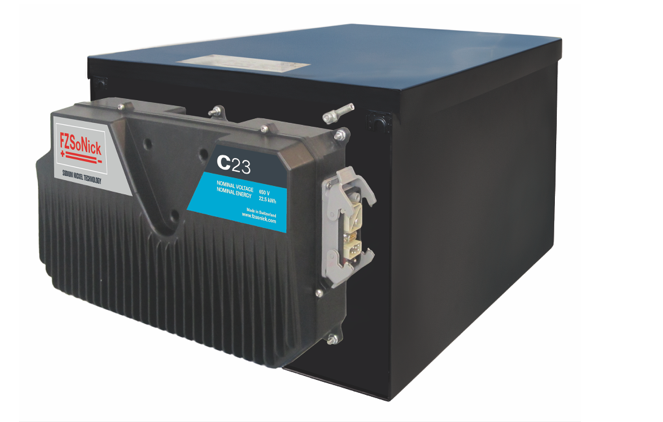Worth their salt
What role can the Salt Battery play in a more sustainable future? Massimino Cavaliere sales & marketing director at FZSONICK explains…
Batteries are an integral part of a sustainable future, but the current proliferation of Lithium-Ion batteries comes with problematic issues. Electric vehicles in particular are driving the market to stratospheric heights, with the industry projected to reach USD 100 million by 2025. The manufacturing process requires extensive amounts of rare-earth metals, specifically Cobolt, and the process of mining requires large amounts of energy and water.
Lead Acid batteries, likewise, have their drawbacks. They have a typical life cycle of fewer than 1000 cycles and often operate at as low as 50 per cent of their rated capacity. On top of this, they have a habit of releasing noxious acidic gas while they are charged, meaning that they require a sealed battery box.
Another significant consideration with both Lead Acid and Lithium-Ion Batteries is the lack of recyclability. At present, the majority of defunct batteries are exported to Asia. Due to the low cost of many of the components, there is also little incentive to recycle the constituent parts. There is the encroaching EU legislation on battery recycling to consider also, with the journal Nature reporting that the EU is considering setting targets for the collection and recycling of batteries to increase to 70 per cent by 2030. However, without incentives, the most common practice of exporting and incinerating may persist. The '2nd life' solution for batteries, at present, is not a sustainable one.
The fast rechargeability and high energy output of Lithium-Ion batteries make them ideal for use in electric vehicles. For superyachts, they are common in the engine room, tenders and many electric toys. They are the obvious choice for many of these applications.
FZSONICK is a Swiss company of the Dolcetta family that produces sodium metal chloride systems (commonly referred to as Salt Batteries). The Salt Battery may provide a more sustainable option for many of the onboard energy storage requirements. To find out more about the technology, SuperyachtNews speaks with Massimino Cavaliere, sales & marketing director at FZSONICK.
 Massimino Cavaliere sales & marketing director, FZSONICK
Massimino Cavaliere sales & marketing director, FZSONICK
The Salt Battery technology was originally developed in South Africa, before being adopted in Europe in the 1990s. The Salt Battery has been diversified with its applications across multiple sectors, including marine, with FZSONICK looking to expand into the superyacht sector. “Over the last two years, we started focusing much more on the yachts and into the shipping industry. We see a very big advantage by using this technology thanks to the safety, sustainability, performance and strength of our technology,” explains Cavaliere, with part of this development being the attainment of RINA and DNV certifications.
One of the key factors is safety, with the Salt Battery operating at comparatively low temperatures. In the event of an unlikely thermal runaway, the casing can be pieced with no risk of an explosion. They can also be stored with significantly fewer safety restrictions, as Cavaliere elaborates; “We don’t require a fire suppression system or a fire partition and we are completely recyclable. Our customers do not need to be concerned in this respect, we factor the recycling cost into the quotation, and the recycling is in line with the strict EU regulations.”
 Exploded view of the FZSONICK Salt Battery
Exploded view of the FZSONICK Salt Battery
The key advantage that Cavaliere stresses, is recyclability. Additionally, as a part of the production process, FZSONICK does not include conflict minerals such as Cobolt, a key component in the production of Lithium-Ion Batteries. Additionally, Low external operating temperatures allow the batteries to be placed in other areas, giving the Salt Battery more flexibility. According to FZSONICK, there is a relative level of parity between a Salt Battery and Lithium-Ion in terms of performance - if not charging times. The temperature immunity range is from -40 to +60 degrees centigrade, across an estimated 4500 cycles with a comparable energy density and a shelf life of 20 years.
 Cross-section of an FZSONICK Salt Battery cell: Mild Steel case - anode current collector, Nickel bar - cathode current collector, Ceramic β aluminium -solid electrolyte, Anodic material- liquid sodium.
Cross-section of an FZSONICK Salt Battery cell: Mild Steel case - anode current collector, Nickel bar - cathode current collector, Ceramic β aluminium -solid electrolyte, Anodic material- liquid sodium.
With such apparent advantages, why then is the uptake relatively small in the marine sector? With Lithium-Ion still the obvious king of the batteries, Cavaliere sees two primary reasons that Lithium-Ion is not going anywhere. “The Lithium-Ion battery will remain the number one technology across many sectors. For example, the electric car industry is the leading consumer and will remain so. This is because of the way that Lithium-Ion can be built into the bottom of an electric vehicle to keep the centre of gravity very low. The second point is that Lithium-Ion batteries have a much faster recharge time. A 30 min recharge is great for a car but that is not what we are aiming to provide. We can, however, provide a safer and greener option for the marine industry”
This recharge time and mouldable constructive properties are why they are the battery of choice for many superyacht toys also, with the associated well-documented fire risks due to charging practices. As Cavaliere makes clear, the Salt Battery cannot compete with these characteristics, but they are not trying to. The FZSONICK solution is to provide a recyclable and safer solution.
NEW: Sign up for SuperyachtNewsweek!
Get the latest weekly news, in-depth reports, intelligence, and strategic insights, delivered directly from The Superyacht Group's editors and market analysts.
Stay at the forefront of the superyacht industry with SuperyachtNewsweek
Click here to become part of The Superyacht Group community, and join us in our mission to make this industry accessible to all, and prosperous for the long-term. We are offering access to the superyacht industry’s most comprehensive and longstanding archive of business-critical information, as well as a comprehensive, real-time superyacht fleet database, for just £10 per month, because we are One Industry with One Mission. Sign up here.
Related news

The value of class: behaviour-based safety
Part of an interview series with its experts, Lloyd's Register assesses how human factors can impact on-board safety
Crew

Marine Results International SL announces LEEA certification
Lockie Steward-Baker, of Marine Results International SL, discusses the need to lift standards
Crew

Risks surrounding lithium-ion batteries on board
A look back at the conclusions drawn from the fire on board M/Y Kanga in 2018
Crew

The value of class: electric superyacht toys
Part of an interview series with its experts, Lloyd's Register reveals the safety implications of Li-ion batteries
Technology
Related news
The value of class: behaviour-based safety
4 years ago
Risks surrounding lithium-ion batteries on board
5 years ago
The value of class: electric superyacht toys
5 years ago
NEW: Sign up for
SuperyachtNewsweek!
Get the latest weekly news, in-depth reports, intelligence, and strategic insights, delivered directly from The Superyacht Group's editors and market analysts.
Stay at the forefront of the superyacht industry with SuperyachtNewsweek




